Virtue & Power
Reflect on the ethical dilemmas implied by the pursuit of power.
June 14–July 25, 2026
Washington, DC
As the United States approaches its 250th anniversary, there is no better place to study the American experiment than Washington, DC. Each summer, the Hertog Foundation brings together top college students from around the country to the capital to reflect on the theory and practice of self-government.
A select cohort of 32 fellows will be accepted to Political Studies. Each week, fellows will choose between two courses—two approaches to a central political idea—yielding two sections of 16 fellows for lively seminar discussion. In the afternoons and evenings, they have the opportunity to hear from leaders in American government, politics, and culture. Past guest lecturers include U.S. Senator Tom Cotton, Harvard University’s Harvey Mansfield, Manhattan Institute president Reihan Salam, and former Secretary of State Mike Pompeo.
In the heart of Washington, as the nation marks 250 years, Hertog Fellows will study the ideas and institutions that have shaped America—and consider how to renew them for the next generation.
All fellows receive residential accommodations and a $3,000 stipend to offset travel and living expenses.
Why apply to Political Studies?
This fellowship is a full-time commitment. Fellows should expect to spend the morning in seminar; afternoons and some evenings will be devoted to guest speaker sessions and other class activities. Up to 32 fellows will be accepted to the Political Studies Program.
Any college or university undergraduate, or very recent graduate (2025 or 2026) not already pursuing an advanced degree, may apply to the Political Studies Program.
Admission is extremely competitive, and every year we decline admission to many highly qualified applicants simply due to lack of space. A typical competitive applicant will have:
Deadline: Applicants who apply by the Early Decision deadline (01/20/26) will receive priority consideration. Early Decision applicants are expected to participate in the fellowship if admitted and to withdraw applications from other opportunities. If not admitted in the Early Decision round, applicants may defer to Final Decision to be reviewed again.
The Final Decision deadline is February 24, 2026.
Unofficial
Describe, in 1,000 words or less, the political questions you find most interesting, your future ambitions, and how these relate to your preferred program(s).
12 pages maximum; double-spaced. Please send academic writing that best showcases your ability to invent and sustain a persuasive argument, no matter the subject-matter.
Standard applicants will submit one letter of recommendation. Nominated applicants will submit two references & contact info.
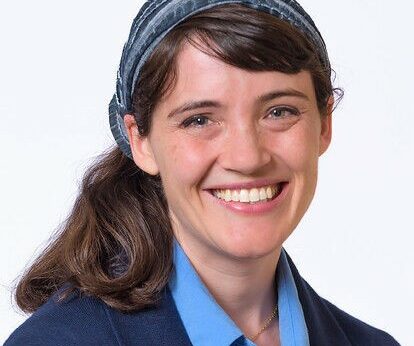

Student, Yeshiva Maharat
Researcher to Bret Stephens at The Wall Street Journal, The Weekly Standard, Tikvah Fellow
St. John’s College, Annapolis
Prolific freelancer Kate Havard Rozansky has had bylines in The Washington Post, The Wall Street Journal, and The Weekly Standard. A graduate of St. John’s College, Annapolis, Kate was part of the inaugural 2010 class of Political Studies, which she credits for helping her get her start in Washington, DC.
I was a sophomore at St. John’s College when I first heard about Hertog. My freshman Greek professor, Adam Schulman, nominated me for the Hertog Political Studies Program. I went into it being interested in the classics; I didn’t have any political background before that.
What drew me to the Program was the Machiavelli, the Aristotle, and the Great Books angle. That’s what I had already been studying at St. John’s and what I was most attracted to. And, of course, the chance to study with [Professors Amy and Leon] Kass was really exciting for me. So that was my pull, and all the political stuff was new to me.
Something I will never forget from Political Studies is the week we were reading Machiavelli. Henry Kissinger was coming to lecture, and I got to give an introduction about Machiavelli and Henry Kissinger in front of Henry Kissinger. That was amazing to me, and is something I will never forget. That class was one of my favorites I’ve ever been in.
At Hertog, the intellectual experience with your peers is also impressive. I met my best friend at Hertog; she was one of my roommates at Political Studies. I’m also close with a good number of other alumni from the 2010 class.
My time at The Weekly Standard was rooted in Hertog. I met the editor, Bill Kristol, at a Political Studies lecture on Tocqueville that he gave. The Political Studies scholars were given copies of The Weekly Standard, and that was my first time seeing it.
After reading The Weekly Standard, I knew that I wanted to work there. Meeting him through Hertog gave me the opportunity to ask for an internship. I don’t think I would’ve been able to do that without Hertog. This was my first exposure to that world, and I kind of ended up in journalism as an accident after the fact of wanting to work for Bill Kristol.
Hertog gave me a lot of great connections that I’m so glad to have had, especially in terms of friends, teachers, and mentors. After The Weekly Standard, I got a fellowship with the Tikvah Fund. That fellowship put me at The Wall Street Journal working for Bret Stephens, which was a wonderful experience. I helped work on a book he was writing that’s just about to come out.
I think because you have direct engagement with this high caliber of teachers, and just by virtue of being immersed in the DC world from the very beginning, Hertog is a great place to go if you’re interested in public policy.
Especially if you’re politically interested, but you’re not exactly sure what aspect of politics you want to get into. Whether it’s political journalism, think tanks, Hill work, or diplomacy, at Hertog you get a chance to preview all the different political lives at once. That’s something you really can’t beat, particularly if you go in like I did with a purely academic background.
I’d still like to be involved in politics and still writing in whatever capacity I can make a living at.
Prolific freelancer Kate Havard Rozansky has had bylines in The Washington Post, The Wall Street Journal, and The Weekly Standard. A graduate of St. John’s College, Annapolis, Kate was part of the inaugural 2010 class of Political Studies, which she credits for helping her get her start in Washington, DC.
“Hertog is a great place to go if you’re interested in public policy. Whether it’s political journalism, think tanks, Hill work, or diplomacy, at Hertog you get a chance to preview all the different political lives at once. That’s something you really can’t beat.”
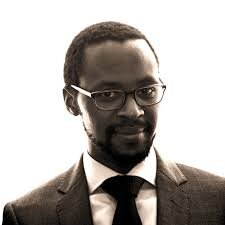
Kevin Kambo
Kevin Kambo is an assistant professor of philosophy at The University of Dallas. He specializes in ancient Greek philosophy, particularly Platonic psychology. He also has scholarly interest in philosophy of technology, liberal education, and philosophy and literature.
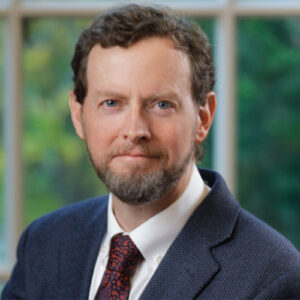
Benjamin Storey
Benjamin Storey is a senior fellow in Social, Cultural, and Constitutional Studies at the American Enterprise Institute (AEI), and co-director of AEI’s Center for the Future of the American University. He is concurrently an SNF Agora Fellow at Johns Hopkins University and a research fellow at the Civitas Institute at the University of Texas at Austin.
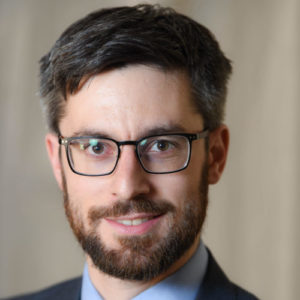
Daniel Burns
Daniel Burns is Associate Professor of Politics at the University of Dallas. His research in political philosophy focuses on the relation between religion and citizenship. He has recently served as a staffer for the U.S. Congress Joint Economic Committee and as a full-time contractor for the U.S. Department of Health and Human Services.
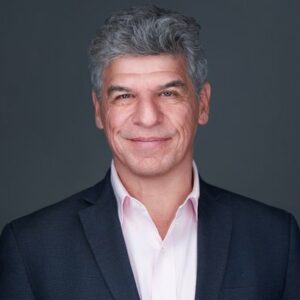
Jacob Howland
Jacob Howland has published five books and roughly 60 scholarly articles and review essays on the thought of Plato, Aristotle, Xenophon, Kierkegaard, the Talmud, the Holocaust, ideological tyranny, and other subjects. His most recent book is Glaucon’s Fate: History, Myth, and Character in Plato’s Republic.
Jenna Silber Storey
Jenna Silber Storey is a senior fellow in the Social, Cultural, and Constitutional Studies department at the American Enterprise Institute (AEI), and co-director of AEI’s Center for the Future of the American University. She is concurrently an SNF Agora Fellow at Johns Hopkins University, and a research fellow at the Civitas Institute at the University of Texas at Austin. She also serves on the executive committee of the Alliance for Civics in the Academy.
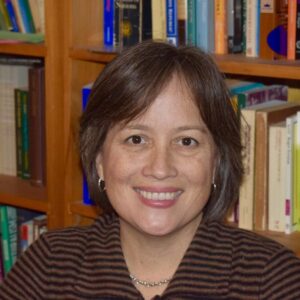
Dorothea Wolfson
Dorothea Israel Wolfson is Managing Director of the Hertog Foundation. Previously, she was Director of the Master of Arts in Government Program at Johns Hopkins University. Her research and teaching interests center on democracy and civic engagement, American political thought, American politics, and family policy. She has published articles on Alexis de Tocqueville, Thomas Jefferson, Abigail Adams, and on John Locke and children’s literature.
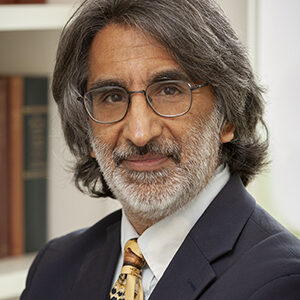
Akhil Reed Amar
Akhil Reed Amar is Sterling Professor of Law and Political Science at Yale University, where he teaches constitutional law in both Yale College and Yale Law School. He is Yale’s only currently active professor to have won the University’s unofficial triple crown — the Sterling Chair for scholarship, the DeVane Medal for teaching, and the Lamar Award for alumni service. He hosts a weekly podcast, Amarica’s Constitution.

Adam J. White
Adam J. White is the Laurence H. Silberman Chair in Constitutional Governance and senior fellow at the American Enterprise Institute, where he focuses on the Supreme Court and the administrative state. Concurrently, he codirects the Antonin Scalia Law School’s C. Boyden Gray Center for the Study of the Administrative State.

Diana Schaub
Diana Schaub is a nonresident senior fellow at the American Enterprise Institute (AEI), where her work is focused on American political thought and history, particularly Abraham Lincoln, Frederick Douglass, African American political thought, Montesquieu, and the relevance of core American ideals to contemporary challenges and debates. Concurrently, she is Professor Emerita of Political Science at Loyola University Maryland, where she taught for almost three decades.
Matthew Continetti
Matthew Continetti is the director of domestic policy studies and the inaugural Patrick and Charlene Neal Chair in American Prosperity at the American Enterprise Institute (AEI), where his work is focused on American political thought and history, with a particular focus on the development of the Republican Party and the American conservative movement in the 20th century.
Flagg Taylor
Flagg Taylor is the Executive Director of the Center for Civics, Culture, & Society, at Miami University. His research specialty is in the history of political thought and American government, especially the question of executive power. He is Chair of the Academic Council of the Victims of Communism Memorial Foundation.
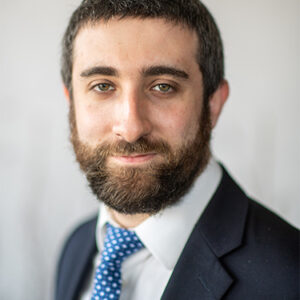
Charles Fain Lehman
Charles Fain Lehman is a fellow at the Manhattan Institute, working primarily on the Policing and Public Safety Initiative, and a contributing editor of City Journal. His work on criminal justice, immigration, and social issues has appeared in the Wall Street Journal and Tablet, among other publications.
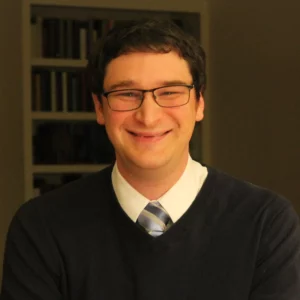
Patrick T. Brown
Patrick T. Brown is a fellow at the Ethics and Public Policy Center, where his work focuses on developing a robust pro-family economic agenda and supporting families as the cornerstone of a healthy and flourishing society. Prior to joining EPPC, Patrick served as a Senior Policy Advisor to Congress’ Joint Economic Committee (JEC).
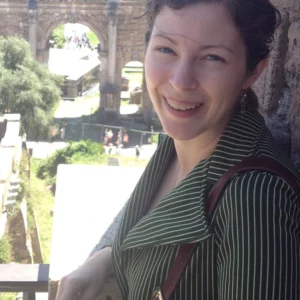
Mary Townsend
Mary Townsend is an associate professor of philosophy at St. John’s University, Queens, NY. Her 2017 book, The Woman Question in Plato’s Republic was named required reading by University of Pennsylvania’s Emily Wilson, translator of Homer’s Iliad and Odyssey, and her academic work on Plato, Beauvoir, and the American abolitionist Julia Ward Howe has appeared in Hypatia, Polis, and Social Philosophy Today.
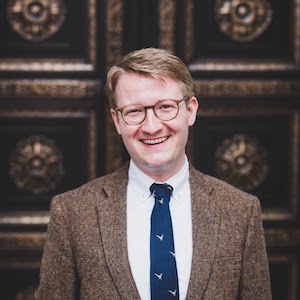
Christopher Utter
Christopher Utter is Associate Director of the Lincoln Scholars program and term professorial lecturer in the Department of Government in the School of Public Affairs at American University. He regularly teaches courses in the Lincoln Scholars program as well as upper level political theory courses. His research focuses mainly on classical political philosophy with a particular interest in the problem of theory and practice in Plato and Aristotle.
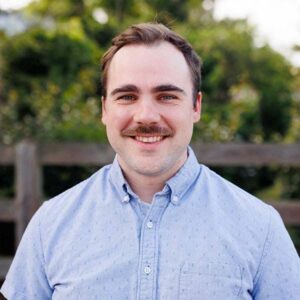
Patrick Coleman
Patrick Coleman is a Tutor at St. John’s College. He earned his Ph.D. in Physics from University of Illinois, Urbana-Champaign, with a dissertation on synchronization, and his B.S. in Physics from William & Mary College along with a minor in Philosophy. He is currently leading a research group on the integration of a Technology and Computation segment in St. John’s College’s Graduate Institute. Patrick has led seminars and reading groups for The Catherine Project, including a recent reading group on Richard Feynman’s Lectures on Computation, and is especially devoted to deepening scientific literacy.